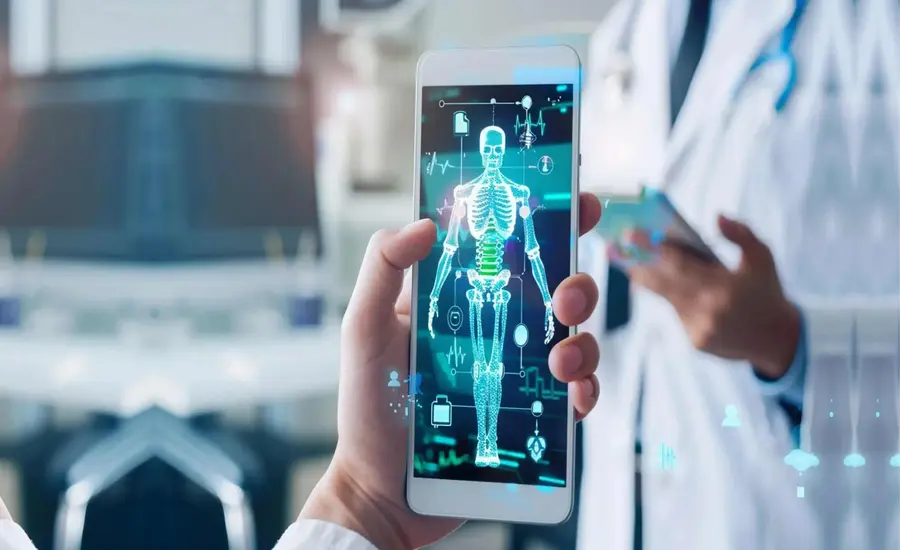Artificial intelligence nowadays has become a breakthrough concept encompassing numerous fields, and healthcare is among the most influential. AI has revolutionized the delivery of health services for hospitals and clinics since they aim at the provision of efficient and effective services to the patients. AI chatbots not only help in streamlining numerous operational activities, but also come as added value to patients and in terms of resources and quality of care.
Here, we explore the top 7 unique benefits of implementing AI chatbots in hospitals and clinics.
1. 24/7 Accessibility and Immediate Assistance
Round the clock availability is one of the most prominent benefits of implementing AI chatbots for serving patients and caregivers. The difficulties of working with human staff in that regard is that they work specific hours during the day, whereas a chatbot is available to answer basic questions and schedule appointments, or handle other basic queries at any time of the day or night. This continuous accessibility makes it easier for the patients to get the appropriate assistance and data when they need it and in the process decreases tension throughout the framework.
2. Efficient Appointment Scheduling and Management
Appointments scheduling, handling of cancellations and modifications of bookings are some of the most difficult processes especially in various clinics and hospitals. Self-scheduling converts this challenge by managing appointments, alerting patients of a scheduled appointment or proposing a reschedule date through an AI chatbot. Through communicating with patients and preventing no-shows as well as improving schedules for bookings, chatbots contribute to the clinics’ effective organization to allow the doctors and other healthcare staff members to wisely spend more time.
3. Personalized Patient Guidance and Symptom Assessment
AI chatbots can do basic triage, where they inquire from the patient about his or her symptoms, illnesses, or pre-existing diseases. As derived from the results, chatbots can help patients navigate to which care level they require: an appointment, home remedy, or a trip to the emergency room. This situational prioritization capacity enhances patient traffic control capacity to determine where the patient should be transferred depending on his/her status, gives priority to more severe patients and thus reduces wait time for critical cases while improving services.
4. Enhanced Patient Education and Health Literacy
This can be regarded as one of the key aspects of patient care since patients need to be informed to make the right decisions. Specifically, the use of AI chatbots allows for the efficient delivery of relevant educational material based on patient demographics, the patient’s diagnostic and treatment data. It motivates patients to employ the disease self- management theory, take time to come up with a change in attitude as well as health behaviors that tolerate treatment, use medication’s regimes and ultimately increase compliance of treatment regimens.
5. Post-Appointment Follow-Up and Care Reminders
Patients are required to be seen afterward to ensure that they recover well but tracking this can be a challenge for most hospitals. AI powered chatbots help solve this by periodically reminding the patient of their medication, therapy session or a recommended regimen. Patients can also express symptoms or any problem via the chatbot so that the doctors are always informed. They also enhance the quality of care, reduce patient readmissions by supporting post-visit care management in an organization.
6. Reduced Administrative Burden on Healthcare Staff
Tasks of administrative nature such as handling of patient inquiries, forms, data entry and other related activities takes a good deal of overall working time of healthcare personnel. These routine administrative tasks are performed by AI chatbots on the one hand and thus relieving the workload of the health care professionals on the other hand. This can spare time for staff to become fulfilled in their work duties, decrease the degree of burnout, and ultimately improve the patient care experiences.
7. Data Collection for Improved Decision-Making
The information retrieved from the patient by an AI chatbot can be invaluable in understanding trends, frequently asked questions, and patient needs, enabling hospitals and clinics to make informed decisions on staffing, resource allocation, and treatment protocols. Where AI chatbots can also help identify areas for improvement, adjust services, and support proactive healthcare delivery approaches. By clicking, get more information on the webpage.
Conclusion
The use of AI chatbots has massive opportunities in enhancing the patient experience and hospital and/or clinic management. This paper has identified the following four important concerns in the healthcare domain that AI chatbots help to meet: availability, administrative load, mental health, and access. With advancement in this method, the implementation of the chatbot is also expected to increase in the future of the healthcare industry.
These health organizations seeking to improve their delivery of services should consider the application of AI chatbots as a move towards achieving a connected approach towards patients.










